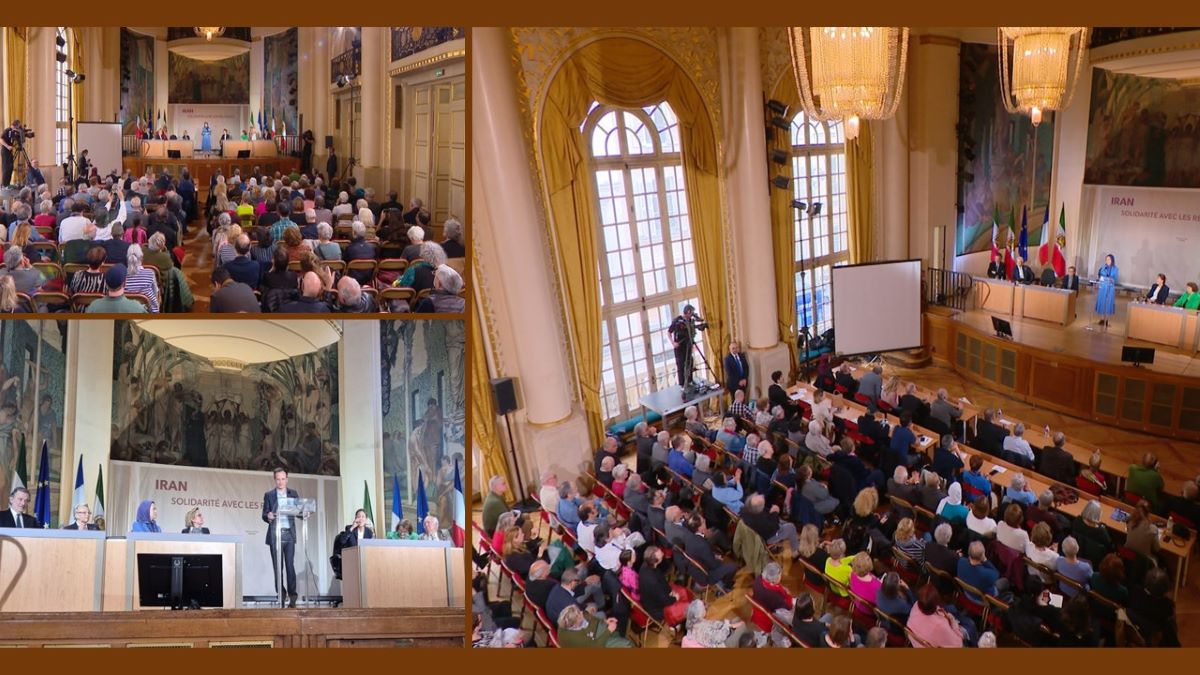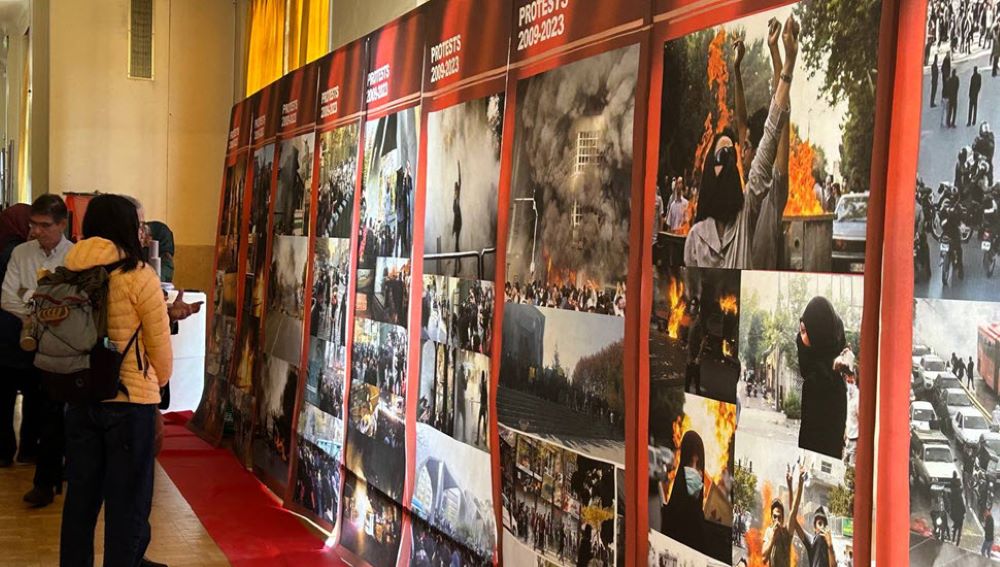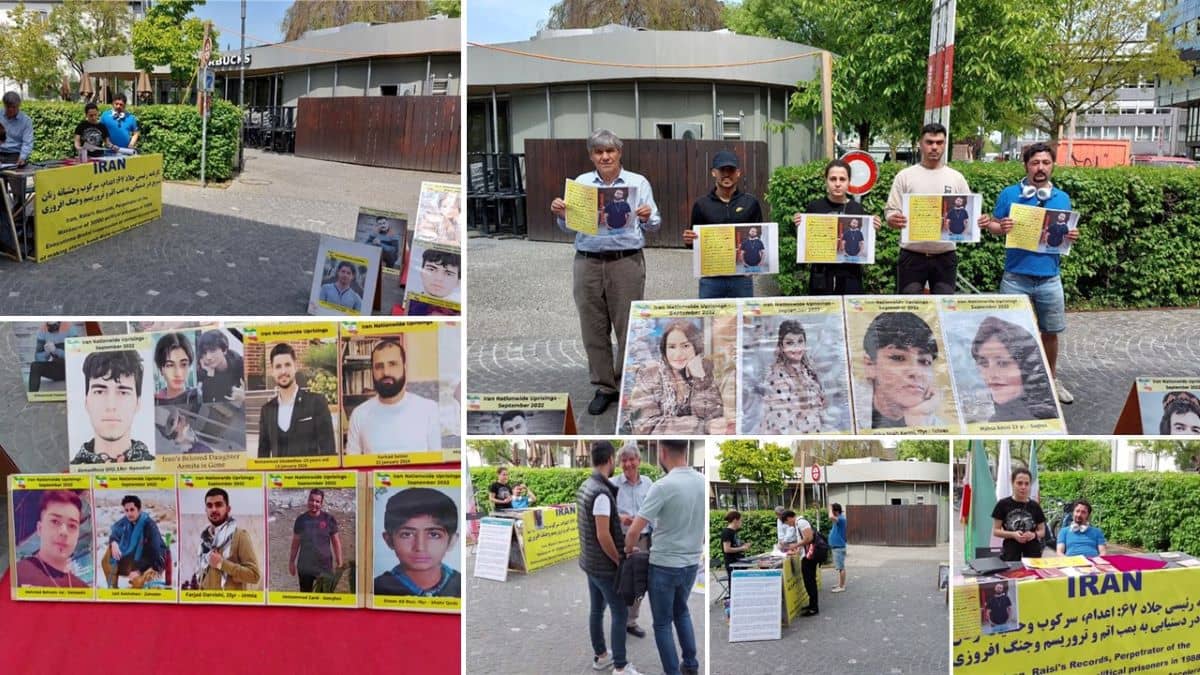An international online conference held, on March 8, 2021, for honoring International Women’s Day(IWD 2021) co-hosted by the British Committee for Iran Freedom(BCFIF), the Women’s Committee of the National Council of Resistance of Iran (NCRI) and The International Committee for a Democratic Iran.
Conference participants discussed the problems and obstacles facing Iranian women in their struggle for change in Iran.
UK and EU Politicians, women’s rights activists, and members of the Iranian Resistance addressed in the event.
Mrs. Maryam Rajavi, the president-elect of the NCRI was the keynote speaker of the conference.
British Committee for Iran Freedom(BCFIF) has issued the following press release.

Press Release: UK, EU lawmakers urge support for female activists leading a push for change in Iran
A panel of 30 members of Parliament and women’s rights activists from the UK and Europe urged their governments to put human rights at the forefront of Iran policy when they participated in an online conference sponsored by the British Committee for Iran Freedom on International Women’s Day, 8 March.
The cross-party speakers called on the UK and EU governments to work together to put pressure on the regime to release all political prisoners, prisoners of conscience, protesters, and dual citizens held under arbitrary charges in Iran, especially the women.
Speakers urged the UK and EU to make economic and political relations and agreements with the regime in Tehran contingent upon verifiable improvements in human rights and women’s rights. They stressed that Iran stands on the brink of change as the regime has no solutions to any of the economic and social crises facing it and that growing popular dissent in the country rejects the theocracy in its entirety and demands regime change.
The President-elect of the National Council of Resistance of Iran (NCRI), Maryam Rajavi, was the keynote speaker at the conference speaking alongside the panelists including several former ministers. “Discrimination and barbaric oppression are indispensable to the mullahs’ worldview and policies,” Mrs. Rajavi said, noting that “the number of women executed during [President] Rouhani’s tenure has reached 114, making the regime the world record holder in executing women.”
She went on to say: “The misogynous regime wants to preserve its rule through repression. However, Iranian women play critical roles in challenging the regime and pushing the situation towards overthrowing the mullahs… As a result, they have greater motivation to end this regime. In five nationwide uprisings in the past two years, Iranian women have demonstrated remarkable heroism and their qualifications in setting up Resistance Units and enjoying the pivotal role in the organised resistance movement.”
The cross-party speakers from the British and European Parliaments agreed that misogyny was rooted in the regime’s mindset, policies and practices. They noted that the targeted suppression of women was central to a broader strategy of domestic repression and served as a means to silence any voice of dissent.
The Rt Hon. Theresa Villiers MP, former Secretary of State for Environment, said: “The regime in Iran has reduced women to second-class citizens. By contrast, Madam Rajavi leads a movement that embraces women’s rights and empowers women to pursue their equal opportunities and shape their country’s future. The regime faces growing protests and popular dissent. The UK and international community must decide which side of history they will stand with. I ask the UK government to put pressure on the regime to release political prisoners, especially the women. The regime fears the empowerment of women.”
The conferenced was chaired by Baroness Verma, who said, “The IWD campaign for 2021 is Choose To Challenge. Women in the Iranian Resistance have fought hard for the future of Iran. They are fighting for equality. They have learned to liberate themselves from the gender apartheid. They have put aside the self-disbelief that many women are accustomed to. For decades, their persistence has sent a clear message to the mullahs in Iran: Women have chosen to challenge and will not give up until Iran is free.”
Former Home Secretary Amber Rudd emphasised that that effort has been costly, but that the severity of their repression has been a tremendous motivator for their sacrifices. “The women of Iran endure much, and they are very brave to object,” she said. “It is remarkable. They have to endure a religious regime that gives them very few rights. They don’t have access to law and welfare that we women in the West take for granted.”
“In Iran, it is so much more difficult to challenge the regime,” she continued. “Difficult and illegal. But the women of Iran choose to challenge not only today, but every day. Iran will only be free when the women of Iran are free.”
Baroness Harris of Richmond hinted at what that freedom might look like, insofar as she highlighted an explicit plan that the Iranian Resistance movement has laid out for a future in absence of the mullahs, which will be defined by gender equality as well as democratic governance. “We know how appallingly women there are treated and we stand in solidarity with you as you fight the tyranny of the mullahs,” Baroness Harris told the female activists viewing the event. “You stand at the forefront of the battle for human rights and for a fair, free and democratic country following Mrs Rajavi’s 10-point plan, which is a blueprint for freedom.”
Zamaswazi Dlamini-Mandela, woman rights’ activist and granddaughter of Nelson Mandela, also addressed the event and compared the clerical regime with the apartheid regime of South Africa: “Just like the fight against apartheid, the Islamic regime finds its toughest enemies among women. As the granddaughter of struggling icon Winnie Mandela, the struggle of the Iranian women is close to my heart… As a global village we are each responsible to stand up and stand together with the women of Iran in their fight against oppression, dictatorship, injustice and inequality.”
Although the conference was largely helmed by female lawmakers, they were joined by a number of male counterparts who used the opportunity to demonstrate solidarity with female activists and also to call attention to the full range of malign activities that justify coordinated international action against the Iranian regime.
Steve McCabe MP stressed that any such action must be assertive, not conciliatory in nature. “The Revolutionary Guards and the mullahs do not understand diplomacy,” he said. “They do not appreciate efforts to seek peaceful resolution of conflicts. They interpret friendly gesture and concessions as a sign of the other side is caving in.”
“We should not negotiate with them unless they agree to give up all nuclear weapons development and the ballistic missile programme in a way that is completely verifiable,” Steve McCabe MP continued. “We should not negotiate with them until there is a complete end to the false imprisonments, the hostage-taking and until they accept human rights and demonstrate their respect for the rights of women throughout Iran.”
The Rt Hon. David Jones MP, former Secretary of State for Wales, said: “Our leaders have consistently failed to adopt appropriate measures against the regime. The IRGC and Ministry of Intelligence and Security (MOIS) must be designated as terrorist organisations. We must consider reducing diplomatic relations with Iran. The regime abused its diplomatic privileges by trying to bomb an NCRI rally in France. We need a new, uniform and robust approach to the regime of Iran.”
The bomb plot to which he referred was thwarted by European authorities in June 2018 and ultimately led to a high-ranking Iranian diplomat, Assadollah Assadi, being sentenced to 20 years by a Belgian court last month for conspiring to commit terrorist murder. The trial revealed, among other things, that Assadi had specifically directed two operatives to place the bomb as close as possible to Mrs. Rajavi, in an effort to eliminate the primary Iranian Resistance leader.
David Jones MP was no doubt thinking of such markers of Mrs. Rajavi’s importance when he said of his proposed “robust” approach, “To succeed, this policy must include dialogue with the NCRI and its President-elect Madam Maryam Rajavi. Iran stands on the brink of change. Western nations must be ready to show their support for a free Iran now, where the role of women is recognised.”
Anna Fotyga, a member of Foreign Affairs Committee of the European Parliament and former Foreign Minister of Poland summed up what is at stake for those who would provide such support: “We have to know that today, we face the murderous and extremely cruel regime of Iran. Today, I will focus on the courageous women of Iran, leading the struggle for freedom in their country, facing unbelievable atrocities. There were women peacefully protesting who were unbelievably treated cruelly by the mullahs’ regime. I pay tribute to the excellent work of Madam Rajavi and in the European Parliament; we stand by you.”
Other speakers at the conference included: Sir David Amess MP, Co-Chairman of the British Committee for Iran Freedom; Rt Hon. Sir Roger Gale MP; Dr Matthew Offord MP; Bob Blackman MP, Co-president of the International Committee of Parliamentarians for a Democratic Iran; Baroness Eaton DBE; Baroness Cox; Prof Lord Alton of Liverpool; Jennifer Carroll MacNeill TD, member of the Irish Parliament; Senator Erin McGreehan, member of the Irish Senate; Jane Dodds, Leader of the Liberal Democrats in Wales; Catherine Noone, former Senator and Deputy speaker of the Irish Senate; Michelle Mulherin, former Irish Senator; Anthea McIntyre, former British MEP; Struan Stevenson, former Scottish MEP and the coordinator of the Campaign for Iran Change; Dr Ranjana Kumari, Director of Centre for Social Research in India, one of the 100 most influential people in gender policy for 2019 and others.
British Committee for Iran Freedom
8 March 2021





